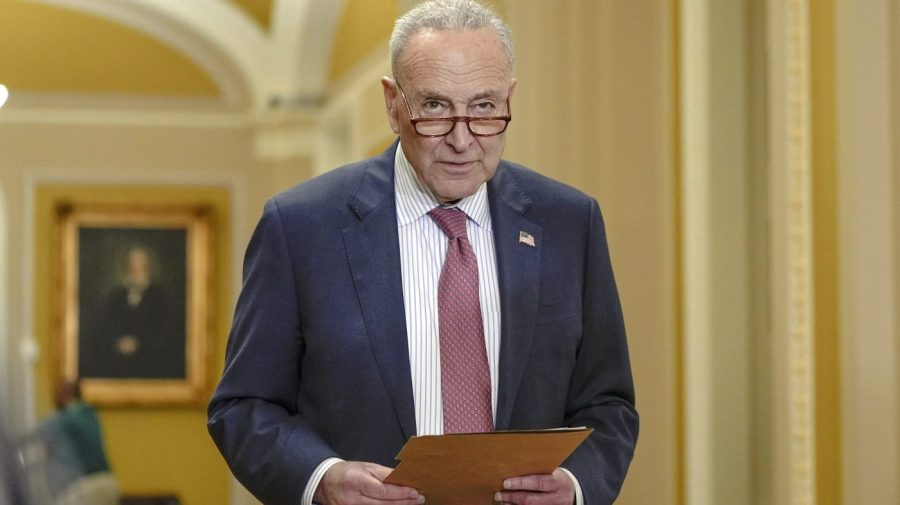
Senate Majority Leader Chuck Schumer (D-N.Y.) on Monday threw cold water on the prospects of reaching a deal to speed up the nation’s energy projects, saying that reaching a Senate deal on permitting reform would be “virtually impossible.”
Lawmakers have been working for nearly two years to come up with such an agreement, which would speed up the process by which energy and other infrastructure projects are approved.
But Schumer expressed doubt that it would actually get done this year.
“I’m happy to listen, but I’ve told Joe Manchin it’s going to be virtually impossible to get something done,” Schumer said, referring to the Democratic senator from West Virginia who is retiring at the end of this Congress.
Lawmakers have long been at an impasse on permitting reform.
Democrats have sought to expand the power grid as part of an effort to boost renewable energy, while Republicans have been more focused on speeding up all types of infrastructure projects — and especially bolstering fossil fuels.
Republicans have raised concerns about some of the electricity reforms, sometimes called transmission, that their Democratic colleagues have sought.
Schumer cited that GOP opposition, saying he did not think that Congress will be able to pass the power reforms.
“I think it’s going to be very hard to get anything done legislatively on transmission at this point given the composition of the House with a Republican majority and so few Republicans eager to do any kind of regional transmission,” the top Democrat told reporters.
Manchin and Schumer agreed in 2022 to get permitting reform across the finish line in exchange for Manchin’s vote on the Inflation Reduction Act, the Democrats’ sweeping climate, tax and health care bill.
But Republicans ultimately tanked the effort, in part to prevent Manchin from scoring a legislative win, and a vote in 2022 failed, with most of the GOP and a handful of Democrats opposing the measure at that time.
Lawmakers from both parties have been negotiating an agreement ever since.
Some reforms that Republicans had been pushing for, including a shortened timeline for environmental reviews, became law in 2023 as part of a deal to lift the debt ceiling.














